Giro d'Italia: Dumoulin the favourite for Montefalco time trial - Preview
Can the Dutchman take the pink jersey off Quintana in Umbria?
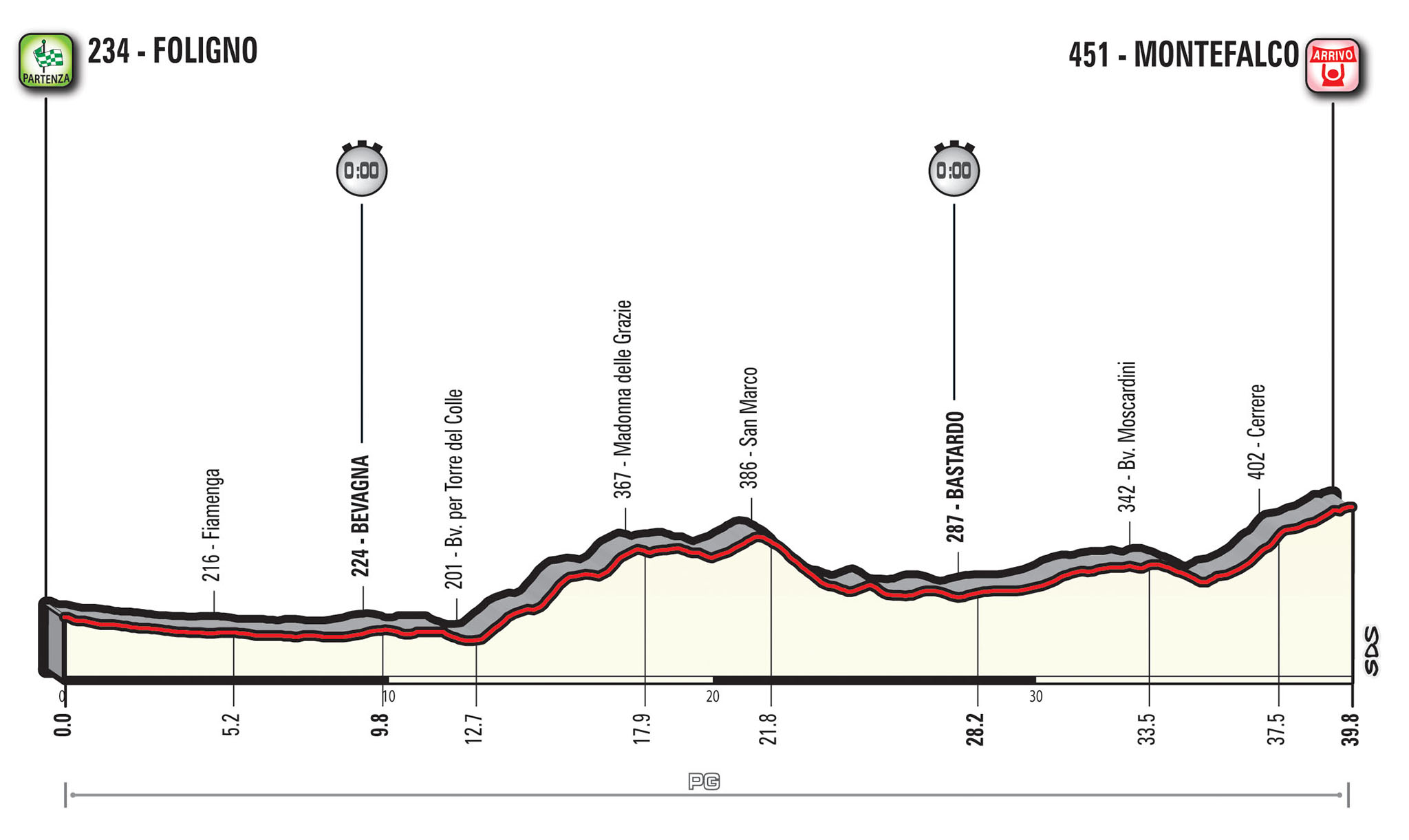
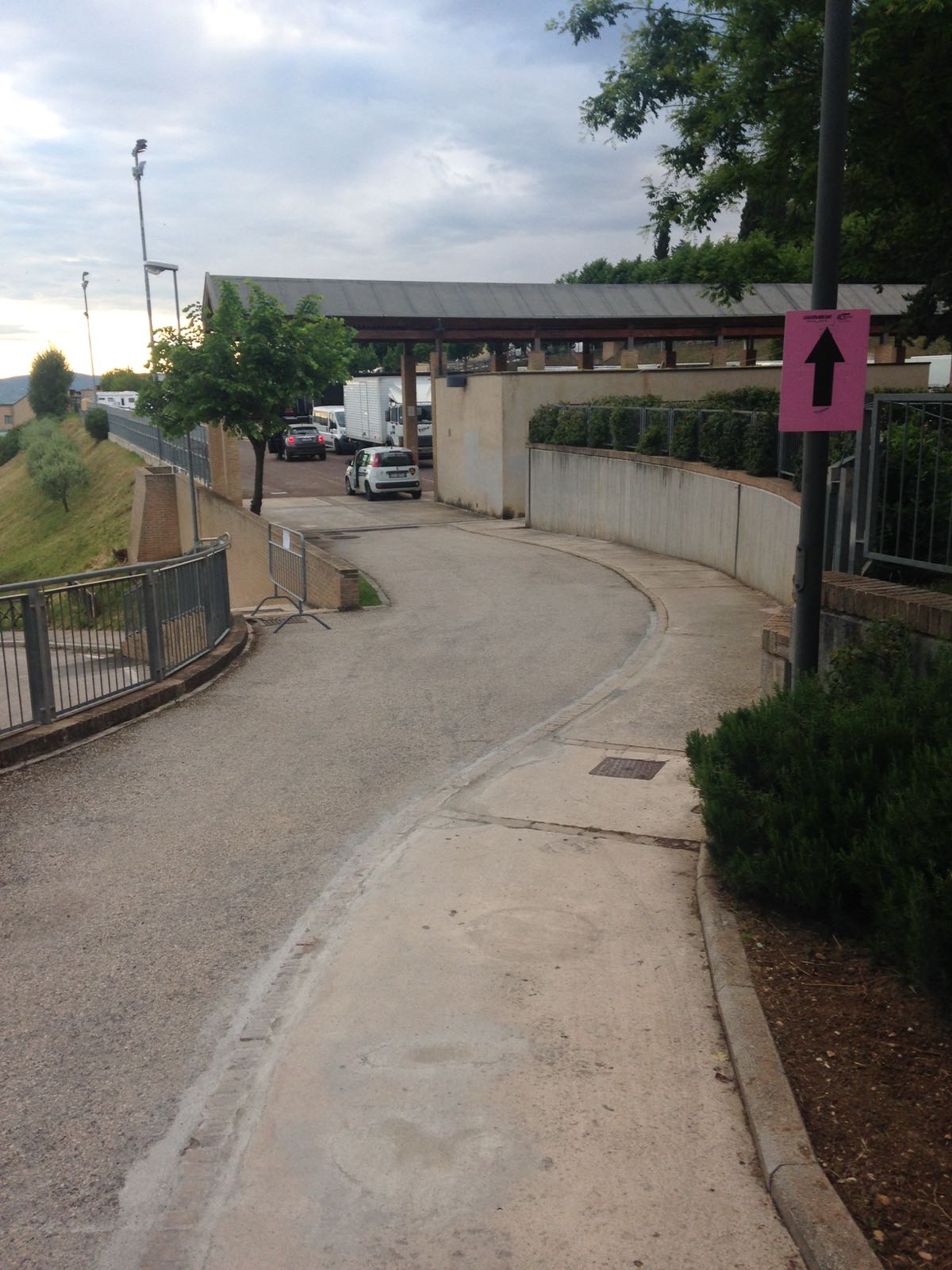
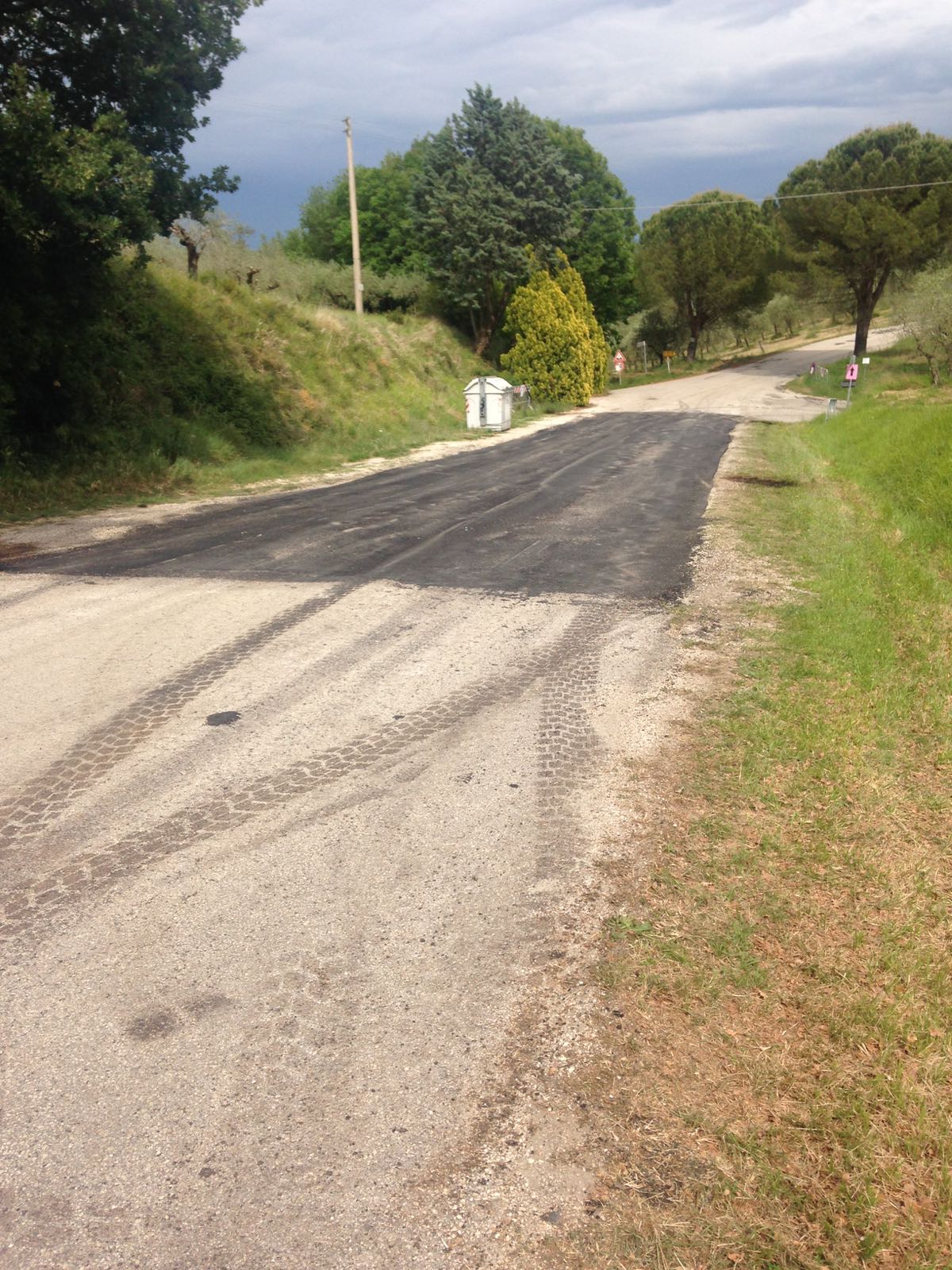
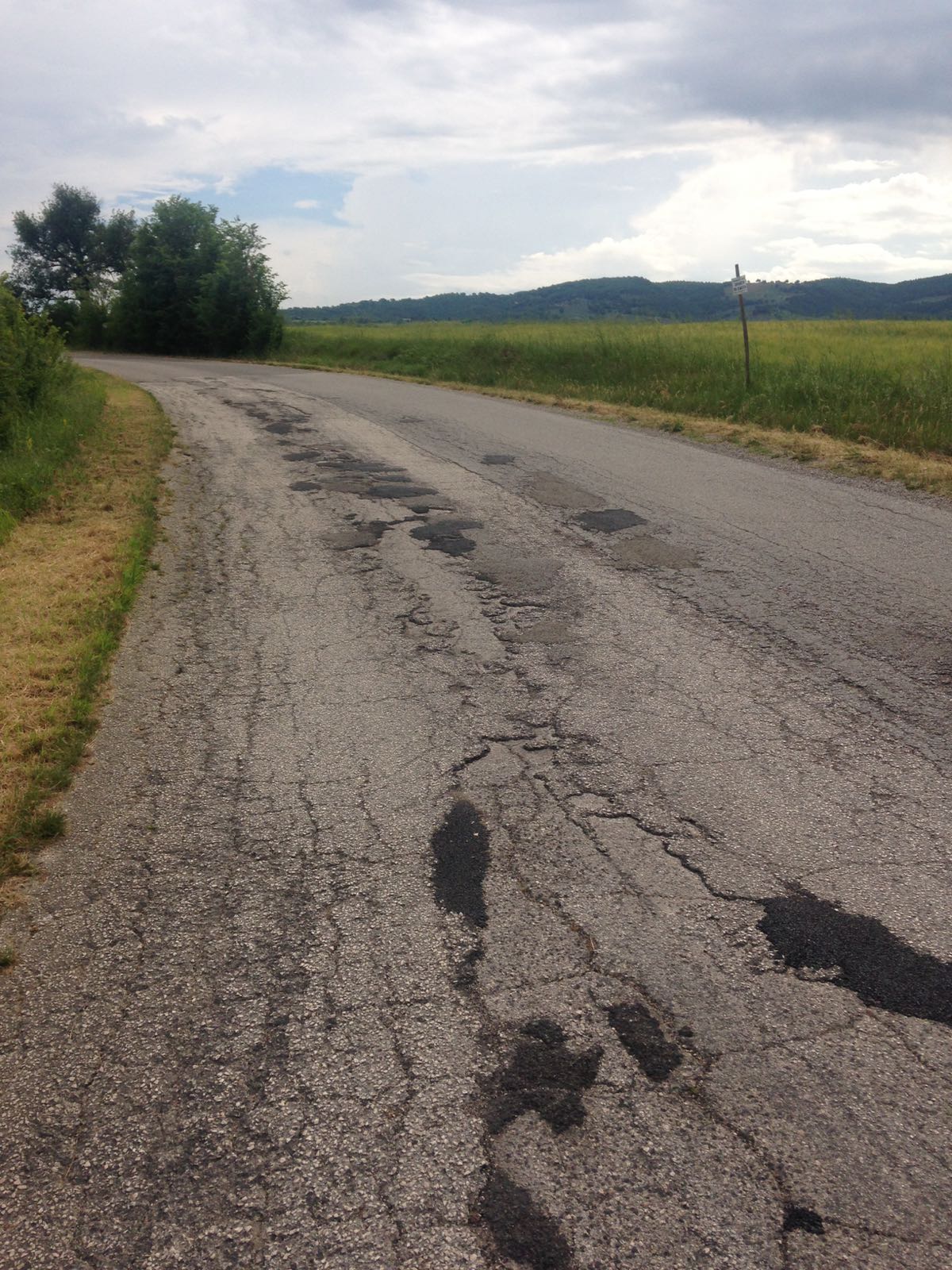
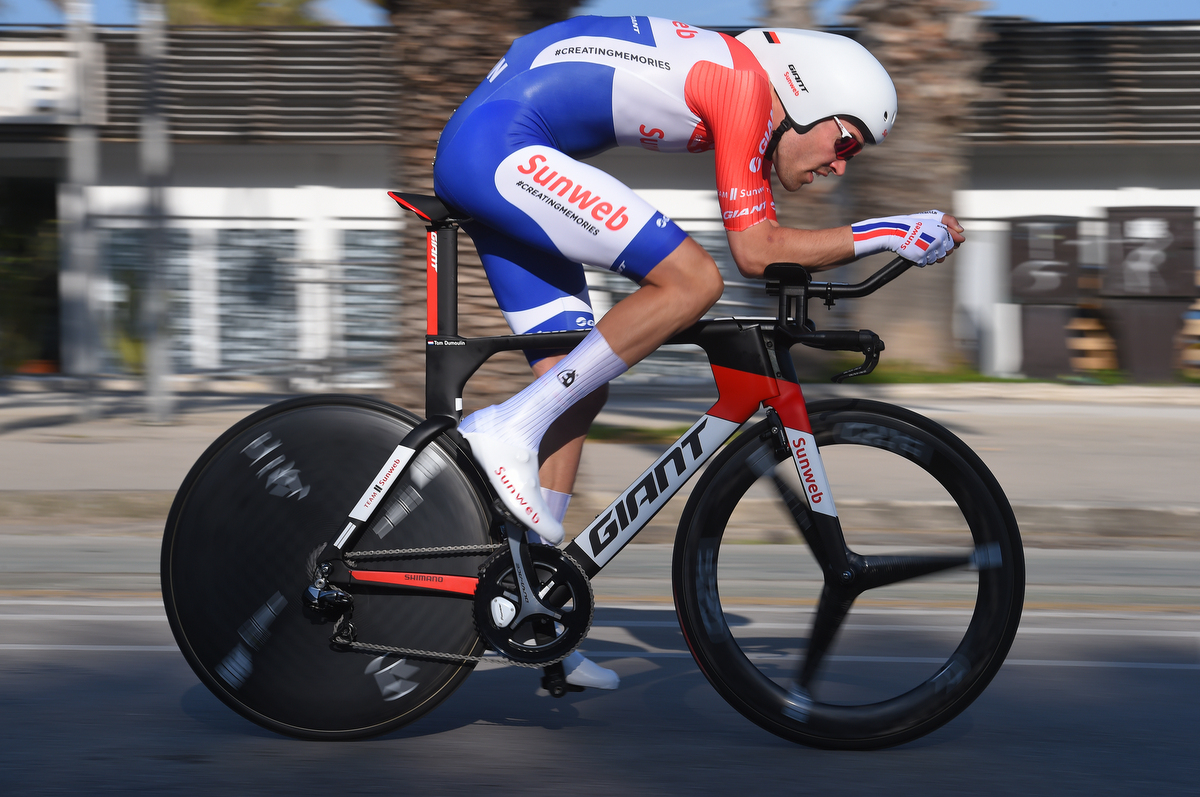
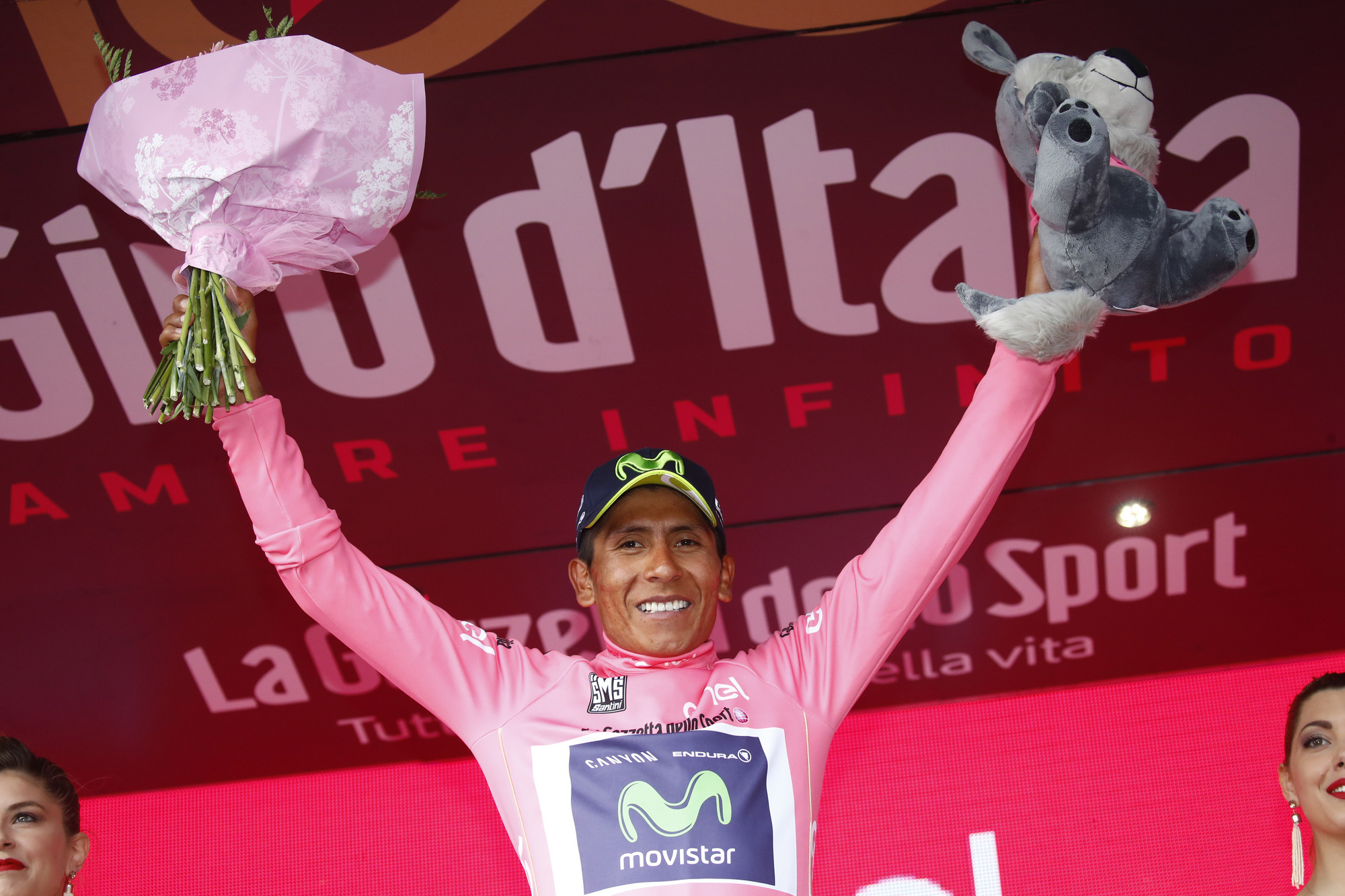
After Barolo, Prosecco and Chianti, the Giro d'Italia breaks out the Sagrantino di Montefalco. The winemakers of Italy have been hosting the Giro's key time trials for the past three years, a cute marketing angle from RCS Sport, and the recent tradition continues in Umbria on Tuesday as the race resumes with a 39.8-kilometre test from Foligno to Montefalco.
As Nairo Quintana (Movistar) forged clear on the Blockhaus on Sunday afternoon, it initially seemed as though he might put the Giro to bed there and then, but when the dust settled, it was clear that the Colombian was still very much in a bike race. Impressive though Quintana's final onslaught was, Thibaut Pinot (FDJ) and Tom Dumoulin (Sunweb) limited the damage, and both start Tuesday's time trial less than 30 seconds off Quintana's maglia rosa. Bauke Mollema (Trek-Segafredo) is only 41 seconds back, while Vincenzo Nibali (Bahrain-Merida), for all that he suffered in the final three kilometres, is still just 1:10 off the pace.
By the time Quintana crosses the finish line in Montefalco at around 5.15 on Tuesday afternoon, he could very well have handed back some, if not all, of his gains from stage 9. Or as Pinot put it sagely atop the Blockhaus: "Today's truth is not necessarily tomorrow's."

In Vino Veritas?
The map and profile for Tuesday's time trial, like the label on a bottle, tells only part of the story; the proof is in the tasting. Riders who did not take the time to reconnoitre the route after Tirreno-Adriatico in March may have experienced something of a shock when they rode the Strada del Sagrantino during Monday's rest day. On multiple sections of the course, the surface is in a considerable state of disrepair, and on time trial bikes, the effect of every pothole and bump in the road will be amplified.
Dumoulin was among those to ride the percorso in the spring, and though he was enamoured by the profile, he was concerned by the condition of the road. His hope was that the local authorities would have resurfaced the worst sections, but when Cyclingnews reconnoitred the course on Monday, it seemed that the work was confined primarily to filling in potholes rather than laying down smooth tarmac.
The opening section of the time trial is relatively straightforward, and likely to be very fast. The road descends gently from the start in Foligno to the first time check at Bevagna after 9.8 kilometres, and one would expect Dumoulin to have clawed back a reasonable amount of ground on the maglia rosa by that point.
After Bevagna, the road surface becomes more of an issue, with one particularly pockmarked section at Torre del Colle after 12 kilometres, just before the road starts to climb towards Madonna delle Grazie (18km). For the most part, the ascent is gradual and relatively gentle, and the road rises and dips slightly for the next three kilometres as far as San Marco.
Get The Leadout Newsletter
The latest race content, interviews, features, reviews and expert buying guides, direct to your inbox!
Read more on this article
- Robert Millar blog: Rating the Giro d'Italia contenders
- Giro d'Italia: Analysing the GC contenders after Blockhaus
- Giro d'Italia: Rest Day round-up - Podcast
- Dumoulin: If I can take Giro lead on Tuesday, I will
- Quintana: Montefalco time trial will suit the specialists
- Giro d'Italia: Pinot not afraid of the pink jersey
The descent to the second checkpoint at Bastardo (28.2km) could prove to be a bit of a – well, you know – but only because of the state of the road surface. Aside from that, it is not especially technical, as the corners are sweeping and the gradients are gentle. Riders will have to pedal most of the way down, meaning that the strongmen will be able to augment their advantage here.
It is a similar story in the final ten kilometres, which features a long false flat to Moscardini (33.5km), followed by a series of mercifully smooth, fresh tarmac ahead of the final drag up to the finish in Montefalco. For the most part, the gradient oscillates between 4 and 2%, and it is only in the very final kilometre that the road rears up in earnest, though only briefly.
The most technical segment of the entire time trial comes inside the final 300 metres, where the course descends abruptly onto a narrow lane that leads into a carpark and a 90-degree corner. Riders will then have to tackle a short, steep ramp before navigating another sharp right-hander before the finish. Mercifully, after a thundershower on the rest day, the forecast is for dry conditions in Montefalco on Tuesday.
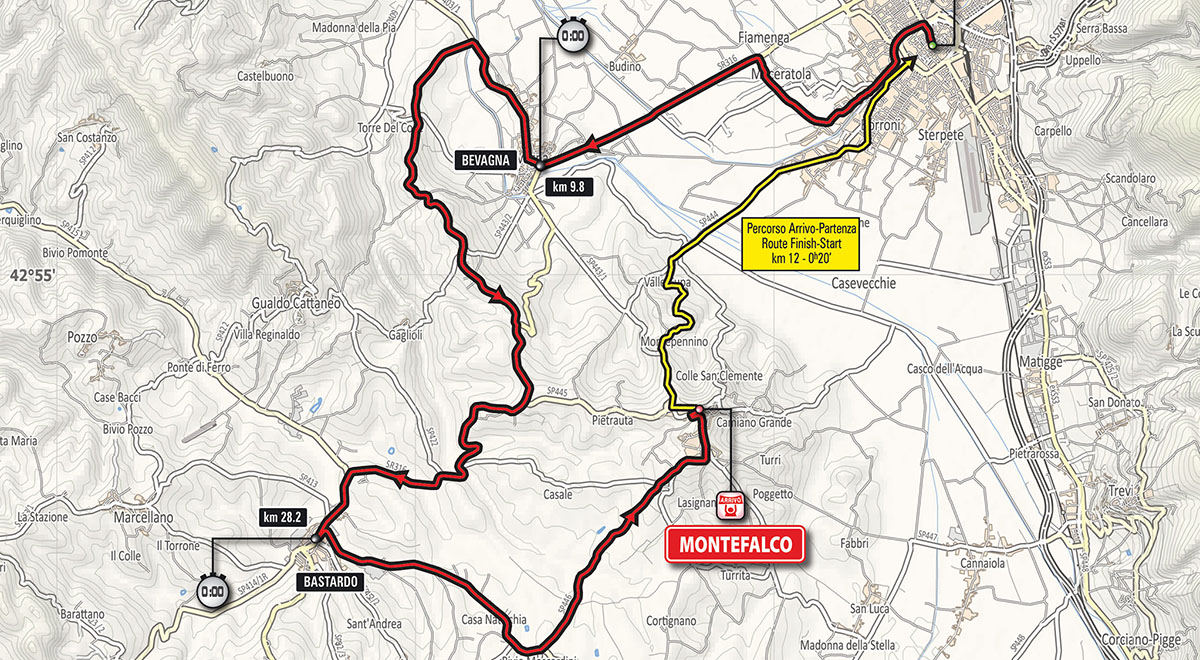
Dumoulin the favourite
Tom Dumoulin is, by pedigree, the outstanding time triallist in the Giro, and the road from Foligno to Montefalco seems perfectly tailored to his talents in the discipline, much like the Ardèche time trial he won so impressively at last year's Tour de France. On past form, he should win on Tuesday and seize the maglia rosa in the process, but it must be noted that time trialling is longer Dumoulin's sole raison d'être.
Dumoulin's preparation for the Giro has focused heavily on his climbing, but a lacklustre 13th place in Tirreno-Adriatico's admittedly short final time trial demonstrated that putting together all the moving parts to win a Grand Tour is a delicate balancing act. If he is to win this Giro, Dumoulin knows that he needs to lay down a marker in Umbria.
Pinot has made huge strides as a time triallist over the past two years – he is the French national champion in the discipline – and while matching Dumoulin would be an achievement, putting time into Quintana must be something of an expectation. Mollema performed well on the Ardèche time trial at the Tour last year and is optimistic about his prospects here.
Nibali's prospects are less clear. He performed very strongly indeed on similar terrain at Saltara during his first Giro victory in 2013, but his displays against the clock have slumped markedly since his victory in the mountain time trial to Polsa later in that race. Nibali has not finished in the top ten of an individual time trial of any description since he placed fourth in the final time trial of the 2014 Tour de France.
Quintana, meanwhile, conceded three minutes to Dumoulin over 37 kilometres in the Ardèche time trial in last year's Tour and struggled to limit his losses in the Calpe time trial at the Vuelta, too. He has been in sparkling form throughout the season thus far, but will need to produce something very special indeed to keep hold of his maglia rosa on Tuesday. On this kind of a parcours, which forces riders to pedal all the way around, and which has no long descents on which to recover, a bad day can quickly escalate into a disastrous one. For Quintana, the day's objective will surely be to limit the damage as best he can.

Barry Ryan was Head of Features at Cyclingnews. He has covered professional cycling since 2010, reporting from the Tour de France, Giro d’Italia and events from Argentina to Japan. His writing has appeared in The Independent, Procycling and Cycling Plus. He is the author of The Ascent: Sean Kelly, Stephen Roche and the Rise of Irish Cycling’s Golden Generation, published by Gill Books.